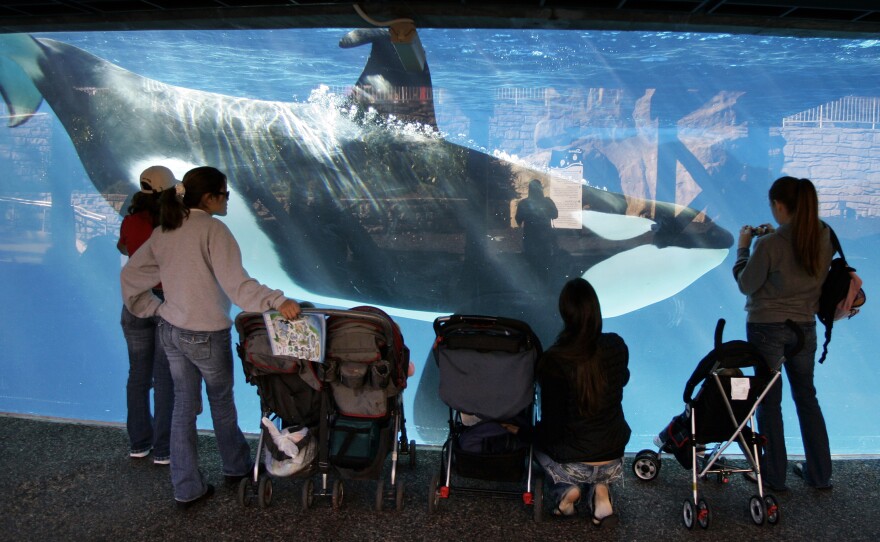The commission's October order was a condition to its approval of a permit to allow SeaWorld San Diego to expand its orca tanks. Not being able to breed its orcas would eventually result in the end of the park's "Shamu" killer whale shows, handing a major victory to animal rights advocates.
About a week after the ruling, SeaWorld announced it would sue to get the order overturned. Theme park officials contend the commission doesn't have jurisdiction over animal welfare.
"The Coastal Commission has neither the legal jurisdiction nor, accordingly, the expertise, to dictate the care, feeding or breeding of animals held solely in captivity under human care," according to SeaWorld's complaint, filed in San Diego Superior Court.
"The Coastal Commission is not the overseer of all activity that takes place in the coastal zone — its jurisdiction extends only to the regulation of development that affects the coastal or marine environment, including public access thereto," the suit says.
A California Coastal Commission officials said it stood by its decision.
Former Coastal Commissioner Sara Wan told KPBS Midday Edition on Wednesday that SeaWorld mischaracterized the scope of its authority.
"The commission's discretion goes beyond what you would normally think of as physical development. Development is broadly defined under the coastal act," said Wan, who is also a consultant for the Animal Legal Defense Fund. "There are provisions that relate to coastal resources and marine resources."
Wan said SeaWorld's breeding program would continue to rely on genetic material from the offspring of wild orcas, captured by other groups, to enhance the gene pool of SeaWorld's captive population.
The animal-rights organization PETA issued a statement criticizing the lawsuit.
"The California Coastal Commission was right to ban orca breeding as a condition of SeaWorld San Diego's expansion and acted fully within its authority as protector of all resources within the coastal zone," the statement said.
"We are left, though, to wonder why SeaWorld is fighting this decision at all, since it now says that its 'goals' can be achieved with the existing cramped tanks, where there will 'not (be) a significant change.
"It's clear that the company's primary intention in pursuing the Blue World Project was to breed more orcas to confine to tanks.
"However, SeaWorld's only chance of competing in the 21st century is to do what PETA has urged the company to do for years — ditch the orca shows and tanks in favor of coastal sanctuaries for the animals and cutting-edge educational experiences without live animals for attendees."
SeaWorld officials had agreed earlier with commission staff not to increase the park's orca population except through occasional captive births or rescues authorized by government agencies. Park officials said they have not captured orcas in the wild for decades.
SeaWorld also pledged that the facility would not house any orcas taken from the wild after Feb. 12, 2014, nor utilize killer whale genetic material taken from the wild after the same date.
After the commission's ruling, park officials also said their "Shamu" shows would be changed to be more educational in nature.
Executives at the theme park on Mission Bay want to build two orca pools, one filled with 5.2 million gallons of water and the other with a capacity of 450,000 gallons, to replace the current 1.7 million gallon tank.
The project also would include replacing restroom facilities for visitors.
SeaWorld said it is regulated by the U.S. government, with frequent random inspections by federal veterinarians and other officials. The park also has to pass strict licensing requirements every year and is accredited by organizations like the Association of Zoos and Aquariums, according to SeaWorld.






